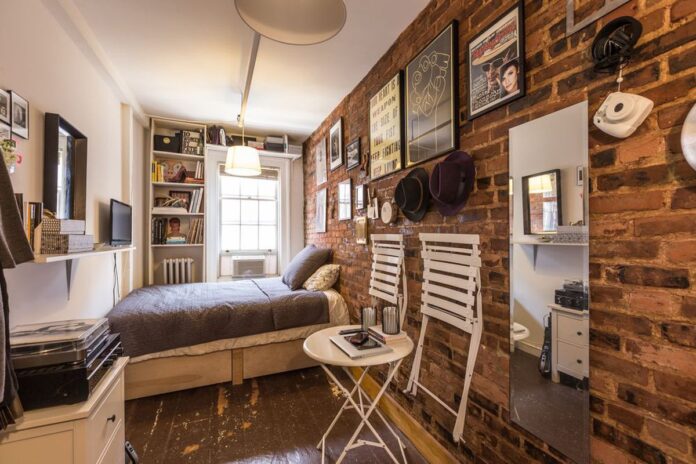Author: Arch. Vittoria Lou Mawis
Date: 23 June 2018
Publisher: Inquirer.net
Link: https://business.inquirer.net/252928/small-spaces-bad-health
Now that micro-apartments are taking reign of the real estate market, it may be wise to know the possible implications of living in small spaces. Sacrificing health in lieu of comfort might not be a great decision, but you might find out that there is not much to worry about after all.
Shared spaces are not ideally tiny. The rising popularity of residential condominiums has had its share of fans and critics.
On one hand, advocates believe that condominiums are the best solution to housing in the city. Living conveniently near places of work or study minimizes traffic and reduces time spent away from family. On the other hand, critics are quick to point out that condos are often overpriced and provide minimal privacy. More significantly, many of them argue that living in tiny spaces can be detrimental to one’s mental health.
Considering that many people today live in condominiums, how much truth is hidden behind this statement? Does living in small spaces actually put its residents at risk of developing health problems?
Cramped or Cute?
Now that micro-apartments are taking reign of the real estate market, it may be wise to know the possible implications of living in small spaces. Sacrificing health in lieu of comfort might not be a great decision, but you might find out that there is not much to worry about after all.
In New York, where the number of households easily overrun the number of apartments, the city government built micro-homes as a housing solution.
Despite these features, however, many criticize this innovative type of housing due to the small spaces being offered at relatively high costs. According to some experts, these tiny spaces can cause claustrophobia and increased stress. For them, these spaces can even lead to higher rates of domestic violence and substance abuse in worst-case scenarios.
Does space = happiness?
Susan Saegart, director of the Housing Environments Research Group, was quoted as saying that micro-apartments are best for millennials working in the city. Children or middle-aged people, however, might find the tiny spaces unhealthy.
As per Saegart, crowded apartments can prevent children from studying and concentrating. Moving or folding furniture might also be seen as a hassle to some residents living in such small spaces.
Conversely, there are people who find the idea of micro-apartments enchanting. For its supporters, tiny spaces provide its residents a better sense of control. Small condominium units are also often compensated with quality communal amenities and green spaces.
Moreover, existing micro-apartments actually attract more than millennials—it surprisingly finds a significant market among senior citizens. For the older generation, small spaces are easier to clean and maintain. More home equals more maintenance and money put towards upkeep; so small spaces tend to be more desirable for older audiences.
Chris Foye, a PHD candidate at Reading University in the United Kingdom, conducted a study analyzing the relation between the size of living spaces and subjective well-being. His proposal states that a person’s satisfaction with the size of his home depends mainly on two factors. One would be the home’s capacity to accommodate its residents’ activities and values. The other would be how that living space compared to neighboring homes.
Basically put, one’s satisfaction with his home size depends on how it allows him to conduct daily routines and what social status it puts him with others.
As Foye puts it, “Individuals are deriving subjective well-being from having more space that other people, as opposed to having more space in itself.”
Conclusion:
Based on these cases, it appears that satisfaction with one’s home boils down to one’s living preference. While some might find condominium living unhealthy and uncomfortable, for others, the setting is stimulating and easy to control.
Yuppies and senior citizens seem to embrace tiny space living, but growing families might not be suited to its features.
At the end of the day, space does affect one’s sense of comfort and happiness, but these feelings are subjective. No one can dictate whether a space is perfectly suited or detrimental to you, it is up to your personal taste and living standards.
What is important is that you make the choice that will accommodate your values and lifestyle. Your home should also be a place where you are comfortable with your neighbors and immediate community.
Small spaces can affect your mental health, but it is not always space itself that is the negative aspect.
It’s beginning to become obvious that the distribution of space in a vehicle is going to drastically effect passenger experience. However, it’s important to be able to gauge just how much space one person may need in comparison to another. Properly accommodating to space needs per audience is going to be critical in determining the direction that we go with this project, and it presents an interesting challenge because our primary audience needs less space than our secondary audience, if we consider the studies that were summarized in this article. Though this article is specifically addressing housing space, we still should consider the types of activities and values that our potential passengers may do and have as well as how they are comparing themselves to other vehicle owners.
Mawis, A. V. L. (2018, June 23). Are small spaces bad for the health? INQUIRER.net. Retrieved September 20, 2021, from https://business.inquirer.net/252928/small-spaces-bad-health.




